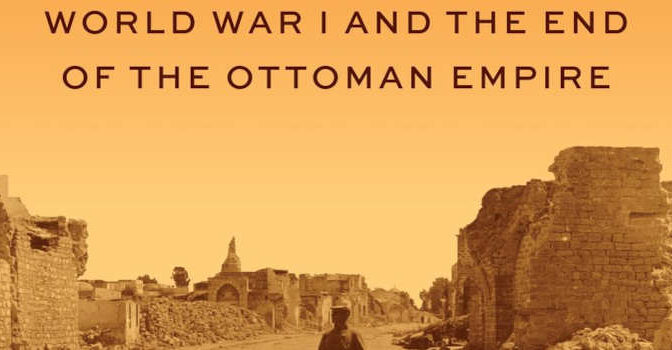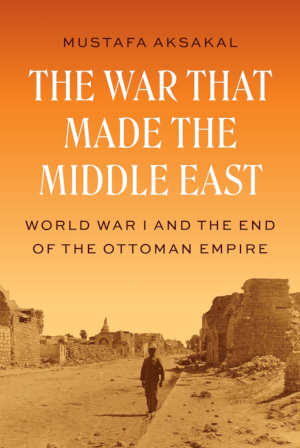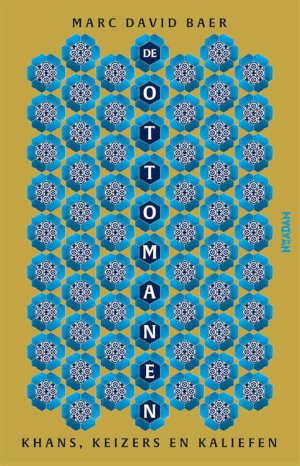Mustafa Aksakal The War That Made the Middle East review, recensie en informatie boek over de Eerste Wereldoorlog en het einde van het Ottomaanse Rijk. Op 13 januari 2025 verschijnt het boek van Mustafa Aksakal de hoogleraar geschiedenis aan Georgetown University in Washington. Er is geen Nederlandse vertaling van het geschiedenisboek verkrijgbaar.
Mustafa Aksakal The War That Made the Middle East review en recensie
- “The War That Made the Middle East explores the Ottoman Empire’s struggle to preserve its beleaguered sovereignty and reconstitute itself through the crucible of the First World War. Offering a corrective to Eurocentric diplomatic accounts, deterministic national histories of successor states, and reductionist genocide-centered narratives, Aksakal draws on rare Ottoman archival materials and overlooked German sources to illuminate the complexity of a transformative war.” (Hasan Kayali, author)
- “This is a landmark new history of the origins of war and dictatorship in the modern Middle East. Mustafa Aksakal deploys an astonishing breadth of research to weave a tragic story about the disastrous choices made by Ottoman rulers confronting existential threats during World War I. He shows how the Ottoman Empire, like so many other states, destroyed its own people in a war against both external imperialists and internal opponents. A must-read for anyone seeking a deeper understanding of the Armenian Genocide, Islamic politics, Middle Eastern dictatorship, and the region’s ongoing trauma.” (Elizabeth F. Thompson, author of How the West Stole Democracy from the Arabs)
The War That Made the Middle East
World War I and the End of the Ottoman Empire
- Auteur: Mustafa Aksakal (Turkije)
- Soort boek: geschiedenis van het Ottomaanse Rijk
- Taal: Engels
- Uitgever: Princeton University Press
- Verschijnt: 16 januari 2025
- Omvang: 264 pagina’s
- Uitgave: gebonden boek / ebook
- Prijs: $ 32,00
- Boek bestellen bij: Amazon / Bol
Flaptekst boek van historicus Mustafa Aksakal
A new history that tells the story of how European imperial ambitions destroyed the Ottoman Empire during the Great War and created a divided and unstable Middle East.
The Ottoman Empire’s collapse at the end of the First World War is often treated as a foregone conclusion. It was only a matter of time, the story goes, before the so-called Sick Man of Europe succumbed to its ailments—incompetent management, nationalism, and ethnic and religious conflict. In The War That Made the Middle East, Mustafa Aksakal overturns this conventional narrative. He describes how European imperial ambitions and the Ottoman commitment to saving its empire at any cost—including the destruction of the Armenian community and the deaths of more than a million Ottoman troops and other civilians—led to the empire’s violent partition and created a politically unstable Middle East.
The War That Made the Middle East shows that, until 1914, the Ottoman Empire was a viable multiethnic, multireligious state, and that relations between the Arabs, Jews, Muslims, and Christians of Palestine were relatively stable. When war broke out, the Ottoman government sought an alliance with the Entente but was rejected because of British and French designs on the Eastern Mediterranean. After the Ottomans entered the fight on the side of Germany and were defeated, Britain and France seized Ottoman lands, and new national elites in former Ottoman territories claimed their own states. The region was renamed “the Middle East,” erasing a robust and modernizing 600-year-old empire.
A sweeping narrative of war, great power politics, and ordinary people caught up in the devastation, The War That Made the Middle East offers new insights about the Great War and its profound and lasting consequences.
Mustafa Aksakal is associate professor of history and the Nesuhi Ertegün Chair of Modern Turkish Studies at Georgetown University. He is the author of The Ottoman Road to War in 1914.



